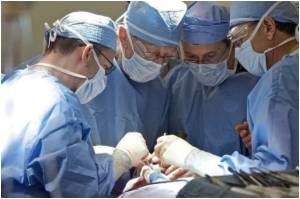A law requiring people to be sterilized as part of sex change procedure before they could be legally recognized as another gender was dropped by Danish parliament on Wednesday.

They would no longer have to undergo the physical sex change procedure before obtaining a new gender on their identification card.
"Today we have dropped the requirement of sterilization when transgendered people need a new personal identification number as part of a legal sex change," Minister for Economics and the Interior Margrethe Vestager said in a statement.
"It will make life easier and more dignified for the individual, for example when you are asked for ID in shops," she added.
The Danish government added that the move could be seen as part of an international trend towards "easing the conditions for legal sex change(s)."
Sweden last year scrapped a similar law and a group of Swedish transsexuals who were sterilized to complete their sex changes have since demanded compensation from the government.
Denmark's personal identification number is used to identify all residents in the country's Civil Registration System, and is needed for everything from salary payments to issuing a passport.
Amnesty International said in February that in many European countries people can change legal gender only if they are diagnosed with a mental disorder, undergo medical procedures such as hormone treatments and surgery resulting in sterilization, and must prove that they are single.
In doing so, these countries were violating the rights of some 1.5 million transgender people estimated to be living across the continent, the organisation said.
Source-AFP











